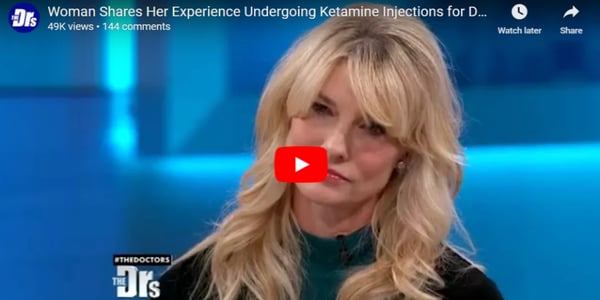“After the first couple of treatments, I felt uncertain, but after my fourth session, everything transformed in a remarkable way.”
A club drug renowned for its hallucinatory effects is paving the way for a powerful new purpose: combating depression. According to the Chicago Tribune, research and reviews indicate that ketamine—an anesthetic—holds promise as an effective treatment for depression.
Sabrina Misra, 36, shared with the Tribune her long-standing battle with depression, which reached a critical point last summer when thoughts of giving up became overwhelming. Instead of succumbing to despair, she embraced her psychiatrist’s recommendation to try ketamine. “After the first couple of treatments, I felt uncertain, but after my fourth session, everything transformed,” said Misra, a therapist and college instructor from Lisle, Illinois. “I moved from a place of deep despair to a newfound sense of hope.”
For this treatment approach, the Tribune explains that patients receive a small dose six times over a two-week period, followed by booster doses every few weeks or months to maintain progress. While ketamine hasn’t yet received the official stamp of approval from the Food and Drug Administration (FDA) for treating depression, many are hopeful. As a result, most insurance plans may not cover its use. For guidance on navigating coverage, check out our resource: How To Get Insurance To Pay For Your Ketamine Infusions.
In Chicago, the average cost is around $500 per dose, but the potential for positive change is priceless.
Given the absence of extensive clinical trials, questions about ketamine’s application in treating depression remain. James Murrough, a psychiatrist from the Icahn School of Medicine at Mount Sinai in New York, emphasizes that while misuse has led to cognitive issues for some, the excitement surrounding ketamine comes with a reasonable caution. “The risk is believed to be low, but it’s essential to stay informed and make thoughtful choices.”
Despite its lack of FDA approval, NPR reports that doctors can and do prescribe it “off-label” for patients seeking relief. In fact, the growing popularity of ketamine has led to the emergence of “dozens of specialty clinics across the country,” where success stories are becoming increasingly common. “It’s a groundbreaking alternative for those who have long suffered,” said Abid Nazeer, the psychiatrist who treated Misra, in an interview with the Tribune. “I’ve witnessed how swiftly one infusion can change lives, eliminating suicidal thoughts that have lingered for decades.”
The exploration of ketamine’s potential in treating depression began in the 1990s, when researchers noted that small doses could bring relief to some individuals. In the 2000s, Carlos Zarate from the National Institute of Mental Health (NIMH) spearheaded studies on the drug, unveiling its profound potential. “While standard antidepressants may take six to eight weeks to show effects, ketamine can work in just one hour,” he conveyed to the Tribune.
Embrace hope; change is possible!




